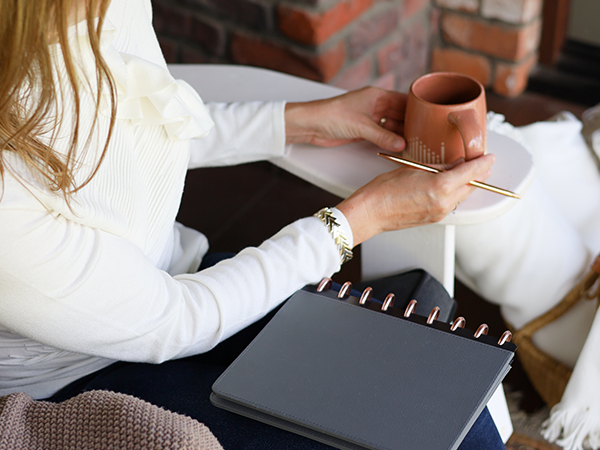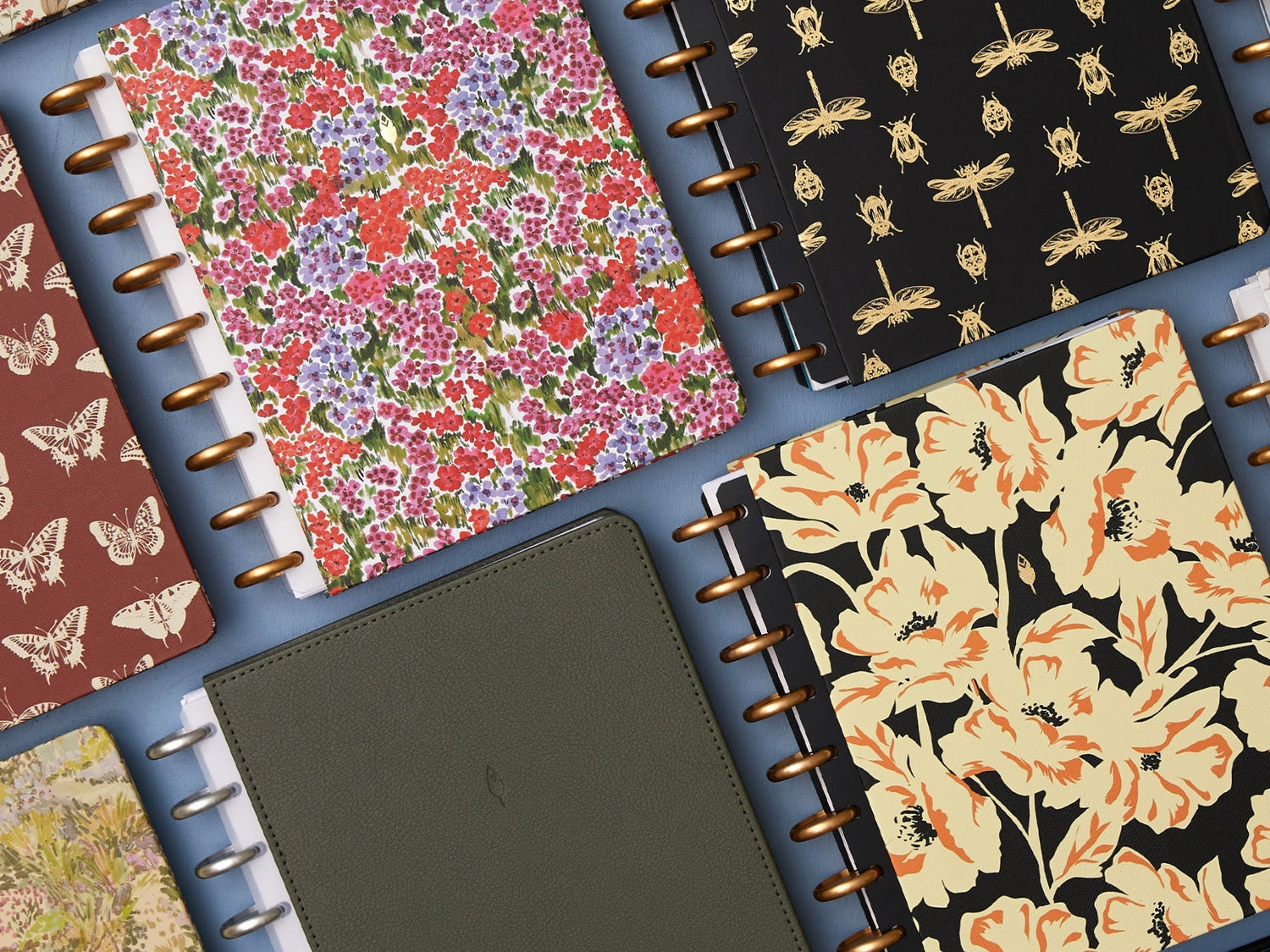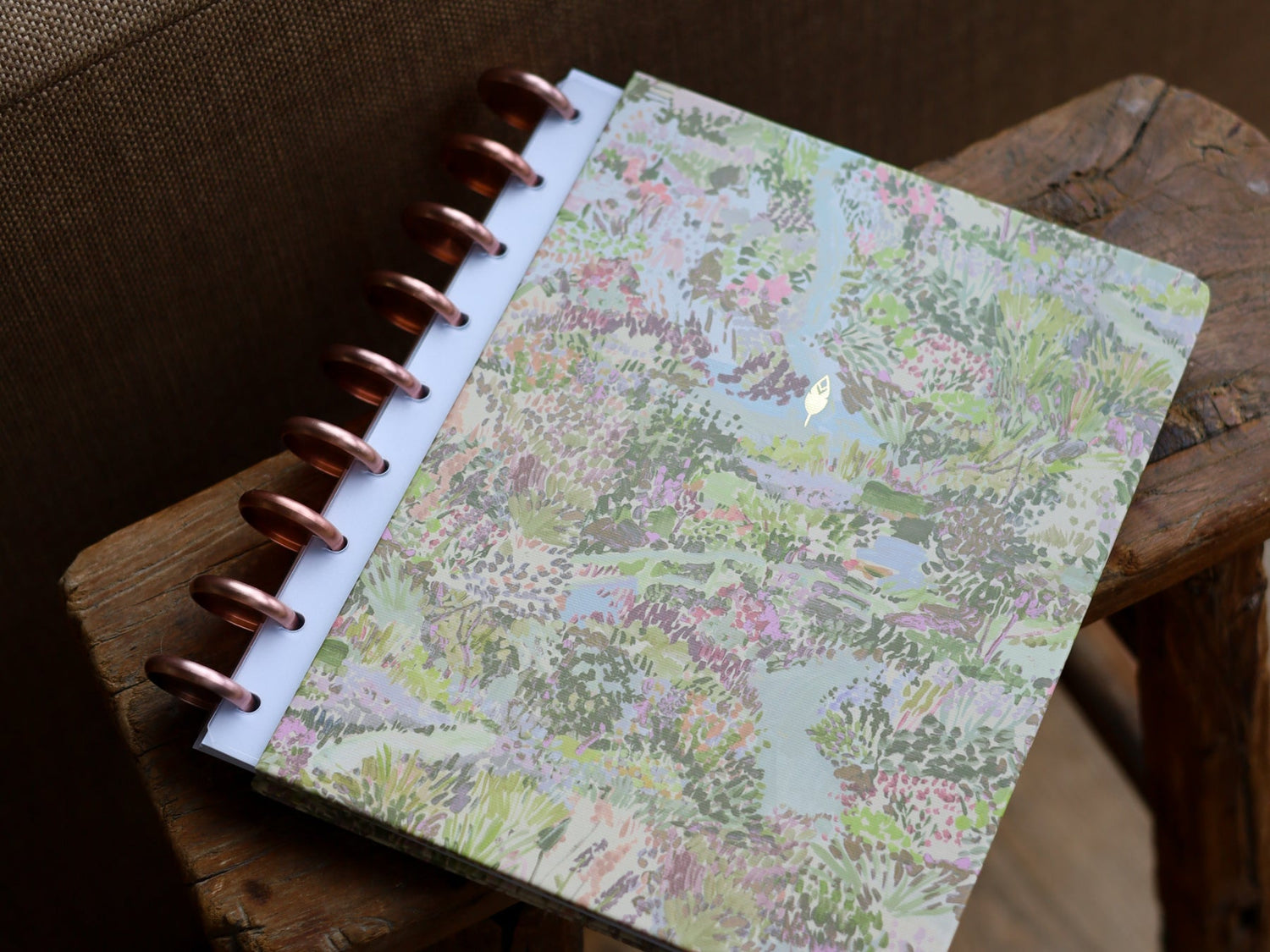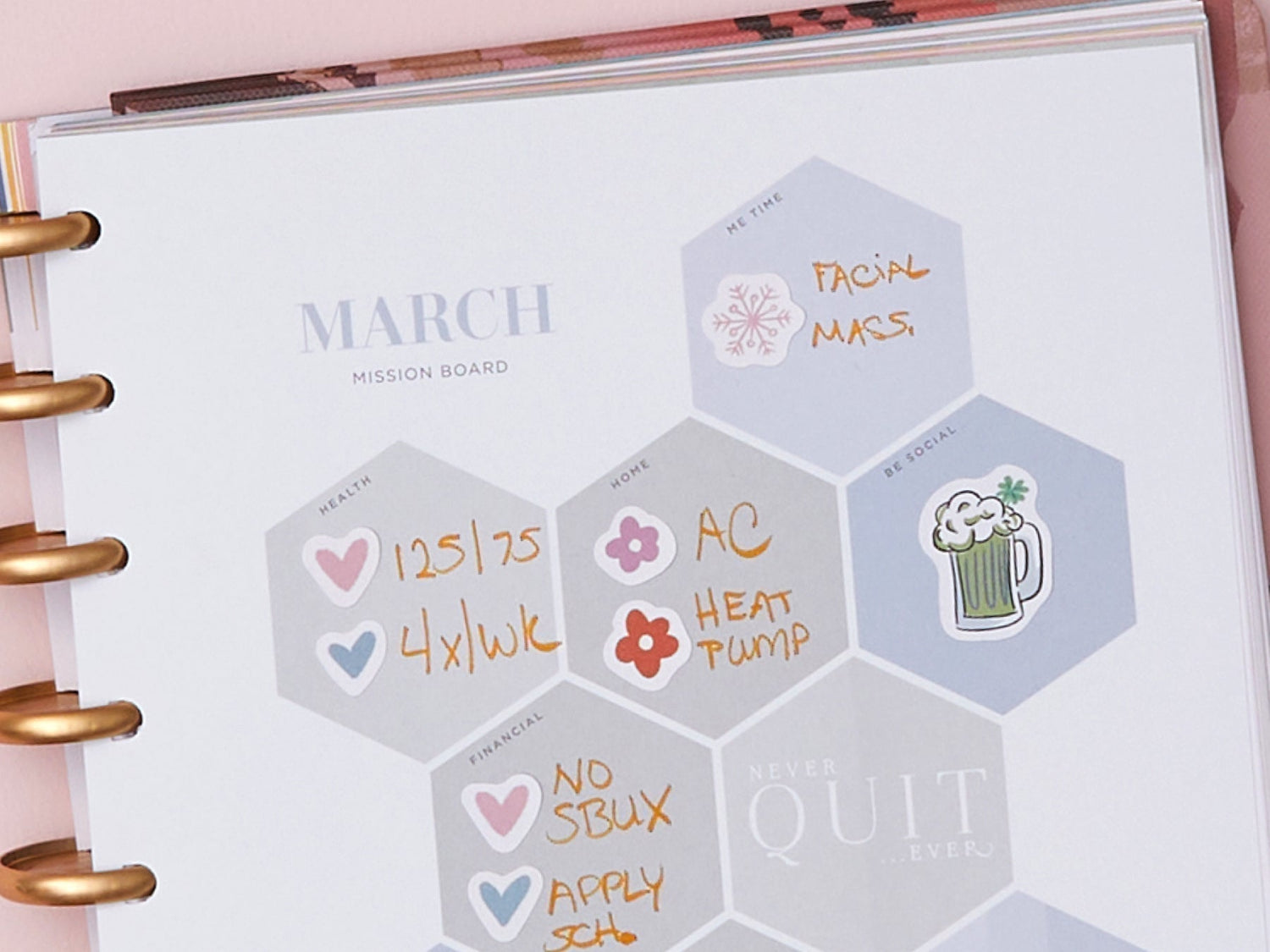Planning, for many of us, is deeply meaningful. It makes us feel centered and more confident because planning puts us in control of our days, even when the world, the news, and everything else feels entirely out of control.
If planning doesn’t feel particularly meaningful to you, it may be because it’s not a ritual or part of your routine. Sitting down to plan and manage your time should be a meditative, peaceful part of your day. But is it a habit, a routine, or a ritual? Let’s break down all three to find out.
Habits:
Habits are something we do without thinking about it.
Do you drink a glass of water when you wake up or brush your teeth twice a day? These are two great habits that we strive to put into our day. Each one is a specific action that requires no further explanation, and they are habits.
But what about exercising? Unless you do a particular exercise, like running or yoga, at the same place for a predetermined time, it’s not a habit. “Exercise” alone is something you can quickly become disinterested in, and unlike brushing your teeth, it doesn’t happen automatically.
These are some examples of easy but healthy habits:
Drink water when you wake up
Brush teeth after a meal and before bedtime
Wash hands before meals
Walk for 15 minutes after each meal
Take medications, vitamins, or supplements
Routines:
Routines are a variety of habits that fit together one after the next. One habit triggers the next habit, which triggers the next: that’s a routine.
It’s safe to say that many of us have a morning routine. Your morning might look like this: wake up with the alarm clock and then go downstairs to make coffee. You get ready, brush your teeth, wash your face, comb your hair, get dressed, make your bed, and eat breakfast.
Routines map out our days in a way that makes sense for us. Routines allow our morning to run a little bit smoother.
Healthy habits and routines are necessary, but alone, they aren’t enough to boost our productivity. Rituals are the final element we want to tie into our routines and habits.
Rituals:
Rituals infuse a tiny bit of joy into the priorities of daily life.
If habits are actions and routines are a series of steps that need to be done, rituals are actions with meaning and emotion.
Rituals work nicely during a transition, or when we go from one job to another, because it signals to our brain that we’re moving on to the next thing.
We transition into different roles and responsibilities all day. We check email, go to meetings, work on logistics, and finally, do something creative. Then we might have to make dinner! It does help to have these rituals in place when transitioning to all those roles. It gives us a sense of control that prepares our brain for those changes.
But unlike a routine, a ritual is something that you look forward to. Routines help us regulate some of life’s messiness, but you can view rituals as actions that make your time feel more purposeful.
Here are some simple ways to integrate rituals into your day:
-
The Wake-Up Ritual: Give yourself the time and the space to lie awake in bed for 10 minutes. Use this time to decide how you want your day to go, set your intentions for the day, do some visualization, and say your daily affirmations or prayers. Then, you can get up and move throughout your day. Those 10 minutes trigger your brain to know it’s time to wake up and move forward. Rituals don’t have to be big; they must be intentional and work for you.
-
Work Mode: Author Stephen King has a writing ritual before he begins his work for the day. He says it helps him shift from the business side of life into creative mode. “The cumulative purpose of performing this pre-writing ritual the same way, every day, seems to be a way of saying to the mind, ‘you’re going to be dreaming soon.’” He puts himself in this dreaming state while he writes and sets the intention for what follows.
-
Quick and Refreshing Nap: One ritual you might consider could be as simple as adding a nap into your day. Winston Churchill reportedly took a nap between morning and afternoon work.
-
Coffee: Drinking coffee (or tea) is a habit for many of us, but if you wake up before your family and give yourself a full 5 or 10 minutes (or more!) to enjoy your morning cup of coffee in peace, it becomes a ritual. This may also be a good time to look at your planner before you start your day.
Whatever you decide, your rituals should be specific and important to you. Choose an activity that gives you a sense of purpose and adds fluidity to your day.
Time has a funny way of slipping past us, so let’s make the most of each moment. Isn’t that what planning is all about?



